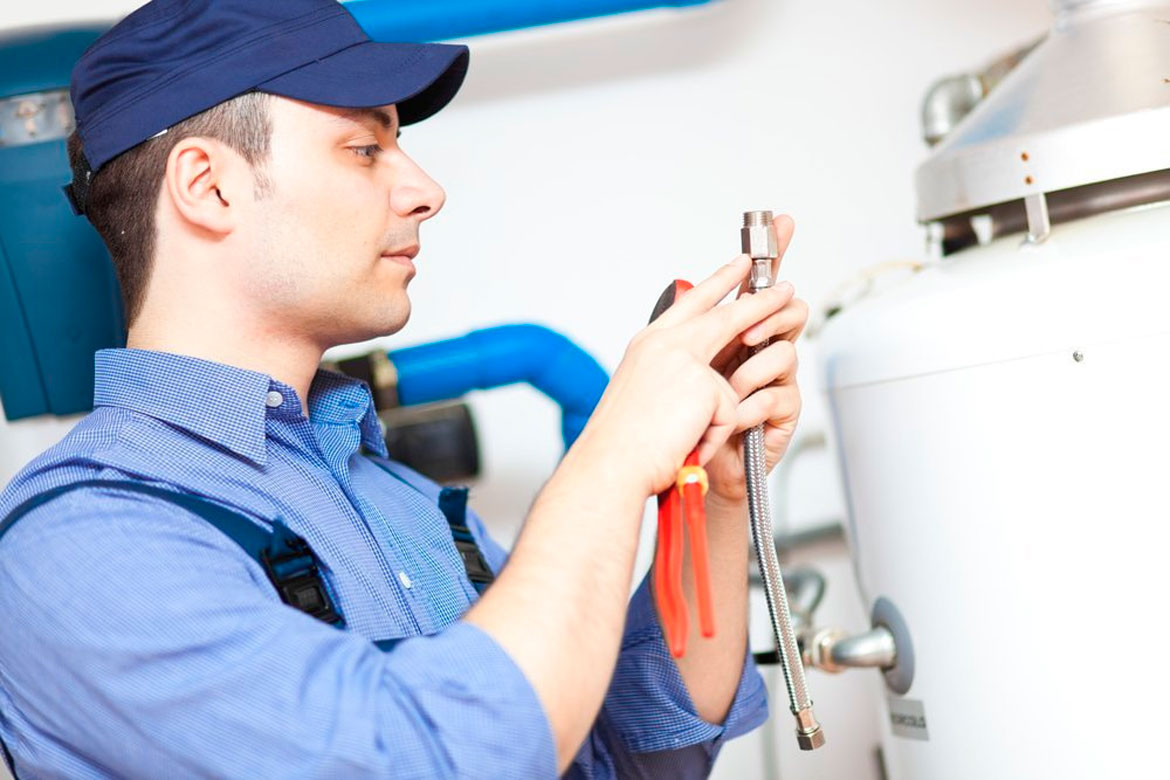Key Steps for Homeowners Dealing with Faulty Heating Units
Key Steps for Homeowners Dealing with Faulty Heating Units
Blog Article
What are your ideas on Water Heater Repair?

Whether it is located in the cellar or a different area, broken hot water heater can trigger anxiety. A typical device holds 80 gallons, so an overnight leak will result in a flooding. This results in significant home damages with soaked walls and also floorings. Besides, having no warm water supply is likewise bothersome. If you are dealing with these concerns, keep in mind of the following:
Call the Plumber
After doing the first 2 safety actions, you must call your plumber to come right away to fix a ruptured water heating system. There are generally indications that your aging water heater has debris accumulation in the inside.
Instead, as soon as you detect these indications, have actually a specialist come to inspect your water heating system storage tank. Generally, water heating systems have a life expectancy of about 8 to 12 years.
Cut Off the Cold Water Supply
Cut off the containers touch water supply from the source. When your storage tank is in good problem, the cold water quits loading up when the tank is full. If you can not locate it or reach it, you should transform off that major water supply line outside your home.
Turn Off Source Of Power
Before calling the plumber, turned off a gas hot water heater by transforming the temperature dial. This is typically found on top of the thermostat. Switch off the circuit breaker if you have a design that runs on electrical power. This will prevent electrocution, especially if there is a leakage as water is a conductor. Normally, the heating element turns off when the water hits a certain temperature level. Yet with a broken tank, it may malfunction. Cutting it off ensures you stay secure.
Tidy up Property
After calling the plumber, file damages by making note and also photos so you can declare your home owner's insurance. From there, begin the instant cleaning. Get any type of important valuables to avoid more soaking. Then, get rid of any standing water to prevent mold and also mold growth. Utilize that to drain the water if you have a submersible water pump. Otherwise, the traditional bucket approach will additionally work. Try to wipe out everything, including baseboards as well as wall surfaces. Keep them running to keep air distributing if you have an electrical follower and dehumidifier. This will help discourage mold and mildew growth.
Keep in mind, if you notice any problems with your hot water heater, call the pros immediately. You can not take this issue lightly due to the fact that a defective thermostat can raise water temp to a precariously high degree, causing unexpected burns. A broken heating unit pressure safety valve can likewise cause a surge. For ideal outcomes, obtain a yearly check so your unit obtains inspected, cleaned, drained pipes, and replenished, ensuring optimum efficiency.
After doing the initial 2 security steps, you must call your plumber to come right away to fix a burst water heater. Instead, as quickly as you spot these signs, have a specialist come to evaluate your water heater container. Before calling the plumber, shut off a gas water heating system by turning the temperature level dial. If you have a submersible water pump, utilize that to drain the water. Keep in mind, if you observe any concerns with your water heater, call the pros right away.
Is My Water Heater Broken?
The Water Heater is Old
No appliance will last forever. This includes a home’s water heater. During its lifespan, residents are going to face a situation where a new water heater installation will be necessary. The biggest problem with this is that most people are not sure when their water heater expires. Not knowing this can lead to serious risks if the unit begins to act up due to old age.
Most makes and models of water heaters will last between eight and 10 years. While 10 years is the age when water heater replacement is highly recommended, the need to replace the unit may occur before this time or after. If the unit doesn’t show any symptoms of a problem, it is a good idea to replace it at the 10-year mark (from the manufacture date).
Some of the symptoms that indicate a new unit is needed include rusting, leaks, noises, and a failure to heat up the water. Also, note that not all units have a 10-year life expectancy. The main exception to this rule is that a gas unit will last for six to eight years.
Rusty Heater Inlet Valve or Water
While steel is the strongest material on earth, it does have a weakness – rust. If corrosion occurs on a steel surface, it will begin to spread and eat through the steel in certain areas. On water tanks and pipes that are made of steel, rust is a warning sign of an impending leak.
The issue for many is trying to figure out if the rust is coming from the water heater or the pipes that lead to the faucet. If rust is seen, it is a clear indication that water heater service from the professionals is needed.
If rusty water appears out of the faucets in the bathtub or sink, it likely means a rusty water heater. If there is rust near the water inlet or the pressure relief valve, rust has likely developed inside the tank. If tap water appears rusty, it may be an issue with the pipes.
Strange Sounds from the Water Heater
Are there strange sounds coming from the tank? As a water heater gets older, rumbling noises may develop and get louder and louder as the water in the tank heats up. In homes where large amounts of hot water are used, the issue is likely going to be even more obvious when more serious issues arise. If there is a strange or loud noise coming from the unit, it is probably because of sediment buildup. A good way to remedy this problem is by flushing the heater. If this does not work, then a new unit may need to be installed.
Leaks
As a water heater gets closer to the end of its useful life, there is a higher chance there will be water around the tank. If there is water, this usually means leaks are occurring. Based on where the unit is located in the home, a leak may result in serious property damage.
Leaks are usually caused by expansions in the metal tank. The expansions occur as time passes and as the inside body of the tank is exposed to multiple heating cycles per day. When a fracture forms, the gap will be slight enough to hold the water in; however, in more serious situations, this will not be the case. If the tank is idle, the water will not leak but when the metal expands during each heating system, small amounts of water will get through the gap.

Do you appreciate reading up on Broken Water Heaters? Leave a remark directly below. We'd be glad to know your responses about this blog entry. We hope to see you back again soon. Make sure you set aside a second to share this article if you enjoyed reading it. I treasure reading our article about Broken Water Heaters.
Resolve fast, contact! Report this page